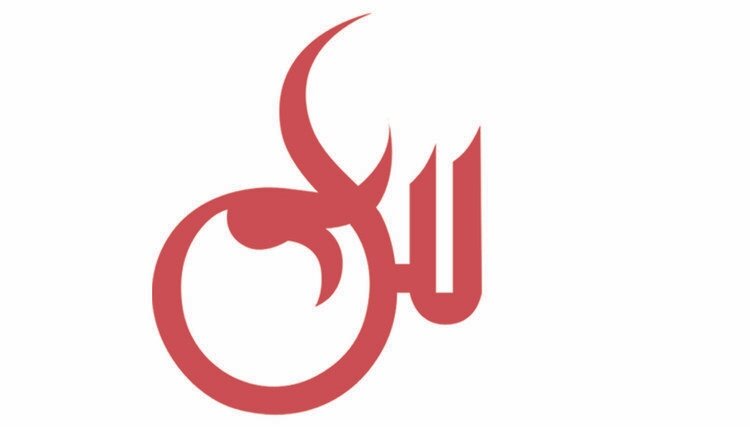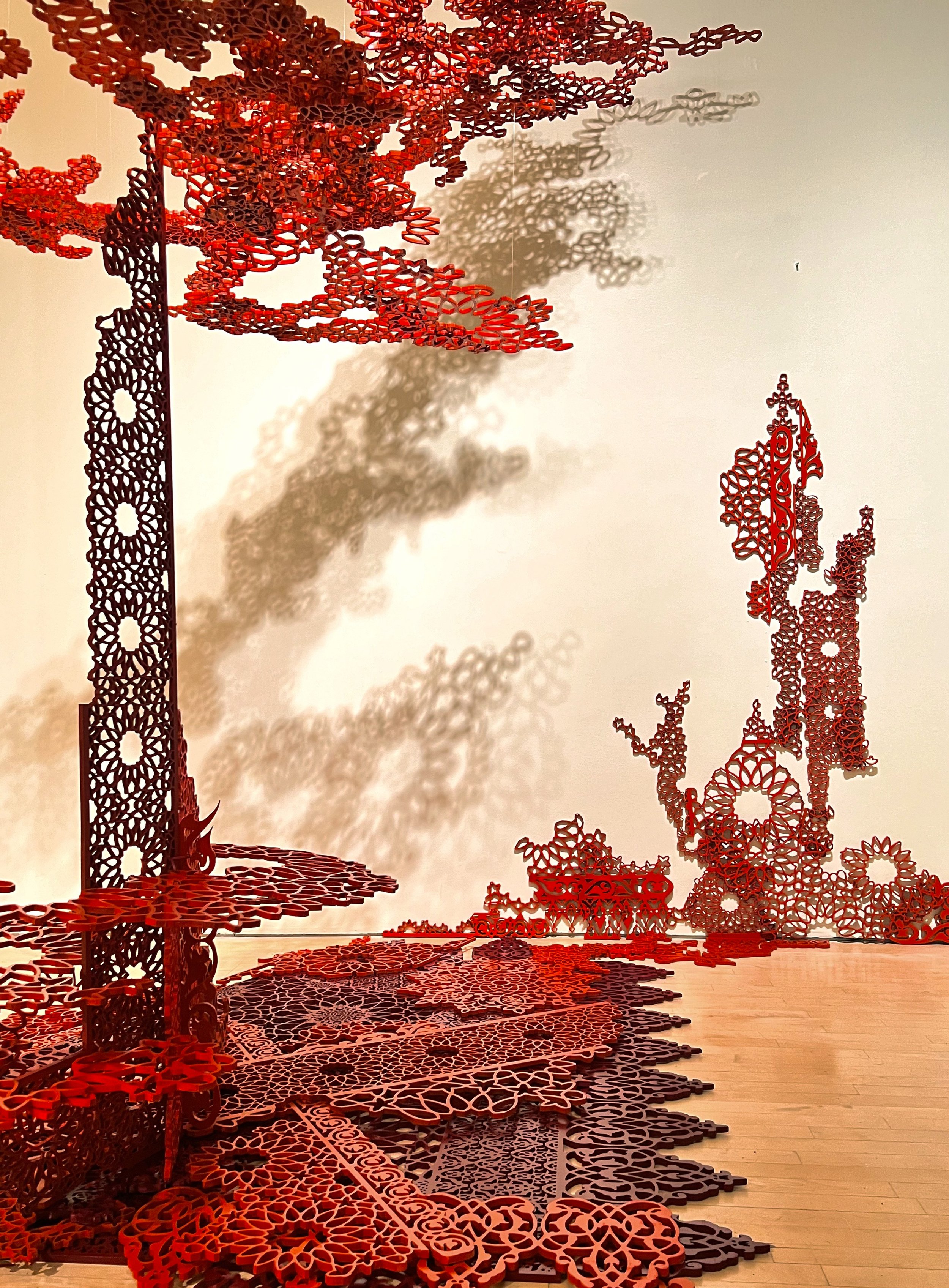Jaali III: “we, who remain strangers,” – Faiz Ahmad Faiz
(Urdu: ہم کہ ٹھہرے اجنبی | ham key therey ajanabi)
2024
Hand-cut and laser-cut screens, broken and reassembled, enamel paint, 96 x 96 x 144 in.
James Gallery
CUNY Graduate Center, New York, NY
After those many encounters, that easy
intimacy, we are strangers now –
After how many meetings will we be that
close again?
When will we again see a spring of
unstained green?
After how many rains will the bloodstains
be washed away?
So relentless was the end of love, so
heartless –
After the nights of tenderness, the dawns
were pitiless, so pitiless.
And so crushed was the heart that
though it wished it found no chance –
after the entreaties, after the despair —
for us to quarrel once again as old
friends.
— Faiz Ahmad Faiz, “Upon Return from Dhaka,” 1974
The structures in Jaali III recall capillary networks in the human body, blood spilled and shed. Materials serve as repositories, concealing, and preserving histories; alluding to bloodlines and ancestral heritage; sacrifice and redemption; life and death; pain, and healing. Jaali explores the possibility of transcending the material realm through a perforation of matter. Carved screens in continuous pattern evoke infinity. Broken parts reform into new unified wholes. Recurring patterns from nature and Sacred Geometric forms allow the work to engage the eternal.
This Jaali installation is created entirely from disparate fragments left over from my 2012–13 Jaali installations with screens carved in Islamic geometric patterns. As the life I had built as an immigrant to the United States fell apart, I broke the screens I had designed, reassembling them into new structures. At a time of trauma and loss, the fragmented forms reunited into novel reconfigurations were metaphors for life rebuilt. New structures created from past ruins, resurrection from destruction, evoking hope, vision for a future, transcendence. Repainted and reassembled, they are repurposed again through multiple lives into new forms. It’s a process of recovery, transformation, manifesting new futures.
Rhea Karam and Sarah Ahmad. Photo credits: Brad Farwell.
© 2014-2024 Sarah Ahmad. All Rights Reserved.


















